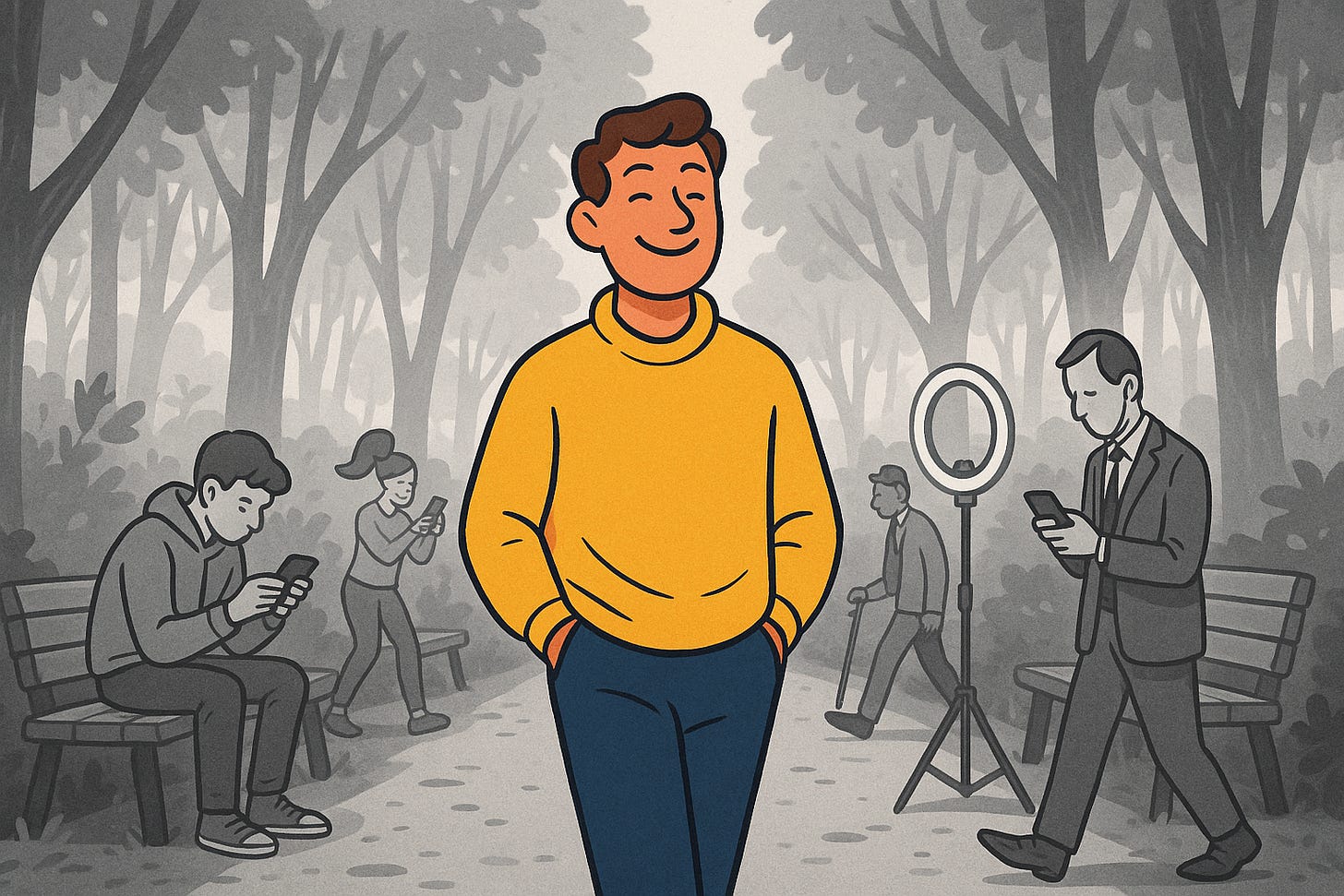Tao Te What Now? (Chapters 10-12)
A slightly unhinged walkthrough of the Tao Te Ching
So you’ve decided to read the Tao Te Ching.
Either you’re seeking peace, chasing enlightenment, trying to out-vibe your therapist, or you just like obscure philosophy that makes you feel smart and dumb at the same time.
Good news: you’re in the right place.
Bad news: it won’t help you get your life together in the way you think it will.
Better news: it might show you that you never had to in the first place.
This ancient Chinese text, written by Laozi around 2,500 years ago, is basically a poetic mic drop about the nature of reality, control, ego, and why trying hard often makes things worse. It’s short, mysterious, non-linear, and aggressively subtle. You won’t get it all on the first read. That’s part of the charm. It’s also part of the test. Which you are not supposed to try to pass.
About This “Cursed” Interpretation
We’re going to go through each chapter, one by one.
Instead of solemn chanting or incense or “sitting with it in silence,”
We’re going to translate it for actual humans with internet-fried brains, executive dysfunction, and a fondness for sarcasm.
Disclaimers:
We love the Tao. We also enjoy poking fun at ourselves while getting deep. That’s the spirit this was written in.
If you're looking for academic accuracy or lineage-specific devotion… this isn’t that.
If you're spiritually curious, allergic to self-serious gurus, and suspicious of people who wear too much linen—welcome home.
Chapter 10
Can you not?
Can you coax your mind back from wherever it’s doom-scrolling right now, and just sit quietly?
Can you do some yoga or something? Instead of being another clenched adult wrapped in tension and opinions?
Can’t you see it’s all in your head? (Wake Up Neo).
Can you lead people without turning into a micro-managing inspiration machine?
Can you stop trying to "handle" life and just let stuff happen, without grabbing it like it owes you money?
Can you step back from your overcooked brain long enough to actually understand something?
Because the vibe is this:
Give life. Nourish it.
Do stuff, but don’t clutch it like a dragon hoarding gold and ulcers.
Take action, but maybe don’t expect the universe to high-five you for it.
Lead, but chill. Don’t force it. Don’t grip it.
That right there? Supreme virtue.
It doesn’t sparkle. It doesn’t trend. It just… works.
tl; dr; True virtue is doing the most without needing control, credit, or clenched muscles.
Chapter 11
Shoutout to the Empty Bits.
A wheel with no empty middle is just a really awkward frisbee.
A beautiful clay pot that’s not hollow is just a lump of clay.
A house with perfect corners, and show-home lottery vibes with no space inside...
Are you starting to get it?
We work with stuff: Material, matter, things.
But it’s the nothingness, the gaps, the open space, that actually makes everything useful.
tl; dr; The Tao doesn’t live in your calendar events, it lives in the parts you keep trying to fill.
Chapter 12
“Stop Doomscrolling.” -Laozi, (c. 500 BC)
Too much time on Insta and Pinterest, and everything starts looking a little gray.
Surround yourself with loud sounds and music, and suddenly the world is uncomfortably quiet.
Too much take-out, and spaghetti night doesn’t hit like it used to.
Too many thoughts? You probably forget your keys again.
Too much desire? Good news.. only 5 years of car payments remaining on that car you probably don’t love anymore.
Meanwhile, the Sage? She sees the world out there losing its mind in TikTok memes and Fox News, but doesn’t download every new dance or manufactured catastrophe into her bloodstream.
She scrolls, but doesn’t spiral. She notices, but doesn’t narrate.
Her vibe? “That looks messy. Swipe Left.”
She doesn’t clutch the outcome, doesn’t try to outmaneuver the universe,
doesn’t scream at the weather for raining on her emotional schedule.
Joy? Cool.
Loss? Also part of it.
Everything flows through her like she’s got spiritual Teflon.
The world is loud on purpose. Don’t let it steal your peace.
Watch it, don’t worship it. Trust your intuition, not the algorithm.


